Worried about whether it is safe to sleep near your baby?
This guide may help you decide on the sleep arrangement that’s right for you.
There are advantages to sleeping near your breastfed baby:
- Your baby settles more easily.
- Your baby cries less.
- It is easier for you to rest while still meeting your baby’s nighttime needs.
- Breastfeeding is much easier.
- Mothers are able to breastfeed for a longer time (Academy of Breastfeeding Medicine, 2008; UNICEF, 2016).
What does sleeping “near your baby” mean?
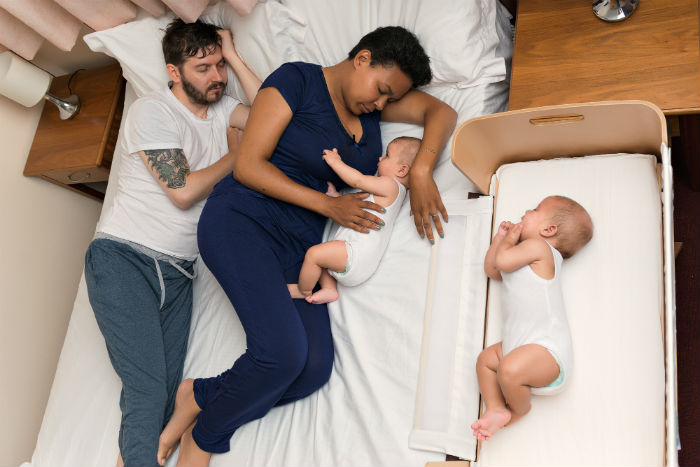
Sleeping near your baby includes having your baby sleep:
- in your bed
- in a crib or bassinet in the same room with you
- in a co-sleeper that is attached to the side of your bed
How common is sleeping near your baby?
Mothers all over the world sleep with or next to their babies. Research suggests that parents do not comply with the “do not bedshare” policies and, in fact, many parents share sleep with their baby, at least part of the time.
What health organizations say

Three major health organizations have noted that sleeping near your baby can protect your baby from sudden infant death syndrome (SIDS), especially during the first few months of life.
According to the American Academy of Pediatrics, mothers and babies should sleep in proximity to each other to facilitate breastfeeding.
The Academy of Breastfeeding Medicine states that some forms of parent-child co-sleeping provide physical protection for the infant against cold and extend the duration of breastfeeding, thus improving the chances of survival for the slowly developing human infant. See Protocol #6: Guideline on co-sleeping and breastfeeding: http://www.bfmed.org.
Similarly, UNICEF recommends sleeping near your baby to prevent SIDS and facilitate breastfeeding.
Bringing your baby into bed with you means you can breastfeed in comfort. This may be why mothers who share a bed with their babies tend to breastfeed for longer than those who don’t.
What you should avoid
Friends, relatives or others you know may tell you that sleeping near your baby is dangerous—especially if your baby is in the same bed. You should know that while there is controversy about this topic, there is currently not enough evidence to support routine recommendations against sleeping with your full-term, healthy, breastfed baby. There are ways to make sleeping with your baby as safe as possible.
To keep your baby safe, NEVER sleep with your baby if you or your partner:
- has taken medicine that makes you sleepy (such as medicines for pain, colds or allergies, or a cough)
- are overly tired or heavy sleepers
- smokes or allows others to smoke around your baby (second-hand smoke increases your baby’s risk of SIDS)
- have had more than one alcoholic beverage
- have had any illegal drugs
- have other children or pets in your bed
NEVER sleep with your baby on a recliner, rocker, armchair, or couch. It’s too easy to fall asleep here while breastfeeding your baby, even if you don’t think you will do. Your baby can roll out of your arms, become trapped, and suffocate.
NEVER sleep with your baby on a sagging or soft mattress, waterbed, or on a mattress pushed against the wall or against a piece of furniture. Your baby could become trapped here too and suffocate.
How to sleep safely near your baby
Here are some steps you can take to help your baby stay safe while sleeping.
- Wherever your baby sleeps, the mattress should be firm, flat, and clean.
- Keep your baby in your room for at least the first six months.
- Remove pillows, stuffed toys, quilts, and fluffy comforters.
- Always place your baby on her back to sleep.
- Dress your baby in a one-piece sleeper to avoid having a blanket in your baby’s face. No ribbons or ties that might be a strangulation risk.
- Be sure that your baby is not overheated.
By sleeping near your baby, you will discover what mothers all over the world know—that it is the easiest way to meet your baby’s nighttime needs. Enjoy a safe night’s sleep with your baby!
The following are more detailed resources for safe sleep near your baby.
ISIS: Infant Sleep Information Source: Bed-Sharing and Safety
ISIS: Infant Sleep Information Source: Key Research 2014 to 2016
ISIS: Infant Sleep Information Source: Normal Infant Sleep
UNICEF: The Breastfeeding Friendly Initiative: Caring for Your Baby at Night
UNICEF (2016): Bed Sharing, Infant Sleep and SIDS
 Dr. James McKenna Mother-Baby Behavioral Sleep Lab at University of Notre Dame, IN, USA
Dr. James McKenna Mother-Baby Behavioral Sleep Lab at University of Notre Dame, IN, USA
Dr. Helen Ball Parent-Infant Sleep Lab, Durham University, UK
Sleep Awareness on Women’s Health Today
Controlled Crying and Long-Term Harm
Four Reasons Our Sleep Is Being Disturbed
Help for Very Fatigued New Mothers
How Do Mothers Get More Sleep?
Will My Baby Sleep More If I Wean Her?
Feature photo with title: Amy Denton
About the author Kathleen Kendall-Tackett

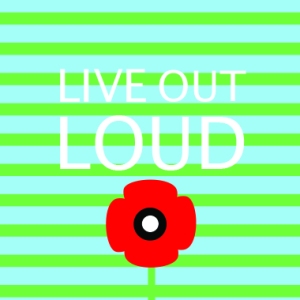
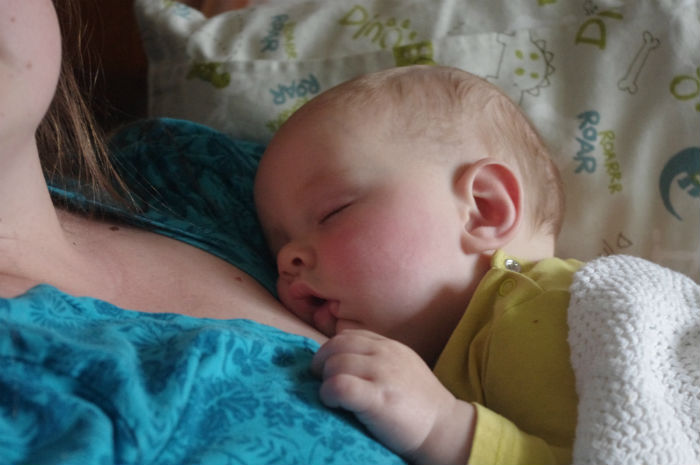




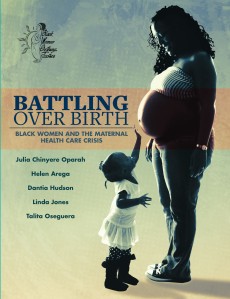





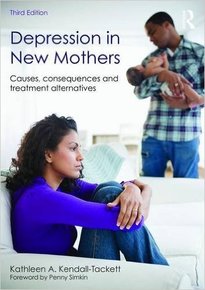









March 17, 2017 at 4:53 am
Sleeping near my baby (in the same bed) has greatly improved my sleep and overall mental function during the day. Before I had a child, I was always saying “that’s so unsafe” or “I’ll never do that.” I can honestly say I’m on the other end of the spectrum now and I appreciate this post for shedding some light on the matter. There’s so much shame and judgment unnecessarily associated with co-sleeping.
LikeLike